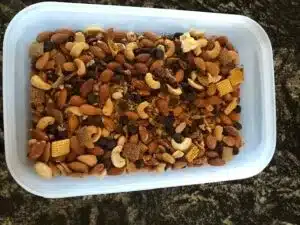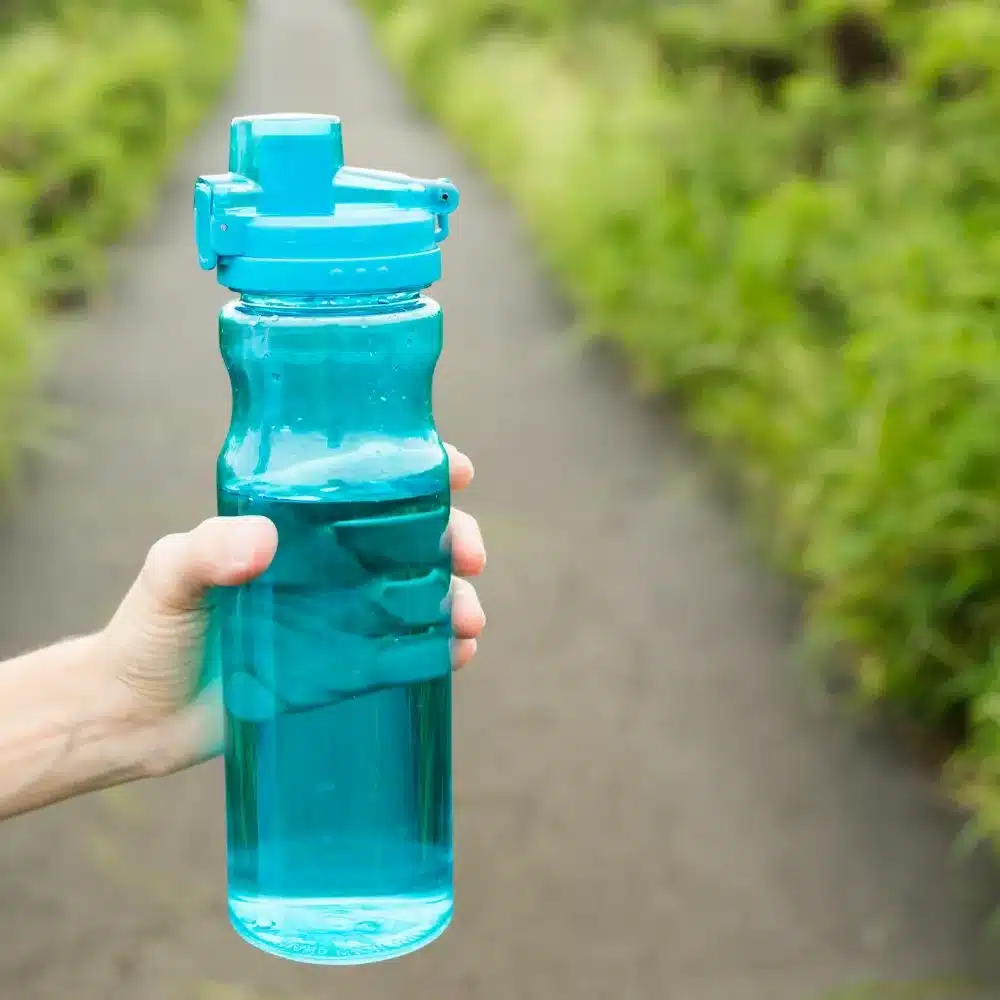- Get a reusable water bottle for both hot and cold beverages. We often get dehydrated, and this can make us feel fatigued. You can flavor water with flavor drops or fruit slices. Fill the bottle with sparkling water, unsweetened tea, or coffee too. If you make beverages yourself, you will save lots of money and wildlife will appreciate keeping the plastic bottles out of their environment! Stay hydrated. It will help you pay attention during classes.
- Avoid sugary beverages such as sweetened coffees, soda, and energy drinks, which will drain your wallet and interfere with your body’s natural processes. You do not need them for any reason.
- Find out if there is a local farmer’s market near your school. It will likely be held through the fall. It is a great place to find affordable fruits and vegetables. Talk to the vendors who know how to prepare them. You can find local foods that make great portable snacks such as pears or apples.
- Locate the nearest grocery store. Stock whole fruit (apple, banana, orange), homemade granola (oats, seeds, nuts as tolerated, dark chocolate chips), packaged cheese cubes or string cheese, popcorn, whole grain pretzels mixed with sunflower seeds, spicy roasted chickpeas, edamame, carrots, bell peppers, and snap peas. These will make healthy, portable food to carry with you during the day.
- Keep healthy foods easily available such as string cheese, cheese cubes, yogurt (may be tolerated with lactose intolerance), carrot sticks or coins, grapes, grape tomatoes, hummus, whole grain crackers, hard boiled eggs, kefir, and cottage cheese for healthy snacks.
- Eat breakfast – avocado on whole grain toast or hard-boiled egg or overnight oats (oats with apple slices and nuts can be prepared ahead of time) so you avoid visits to vending machines for high sugar, low fiber, empty calorie, expensive options. A peanut butter sandwich with bananas on whole grain bread or breakfast burrito are other options.
- Talk to your doctor about a vitamin D supplement during winter when sun exposure is low. It is difficult to get adequate vitamin D from food alone.
- Sleep. Plan to power down screens 9-10 hours before you want to wake up. Sleep influences all aspects of your health.
- Don’t eat dessert for breakfast. Read the nutrition facts food labels to limit sugary cereals and other processed foods. Limit your added sugar (sugar added to processed foods) intake to no more than 25 grams per day and strive for at least 25-30 grams of fiber per day. Try a breakfast burrito with 1 cup black beans and tomatoes. The beans supply fiber and iron while the tomatoes are a vitamin C source. A homemade banana pecan smoothie with 2% milk provides fiber, calcium, and vitamin D.
- Make your own trail mix using nuts, popcorn, whole grain cereal, dark chocolate chips, and seeds. Carry this with you during the day so you always have something affordable and healthy to eat. Buy nuts in larger containers to save money and store extra in the freezer to keep fresh.

- Stay active by taking walks outside. This is good for natural light which maintains circadian rhythm and reduces stress. Try yoga with a campus class or online. A mindfulness practice will help manage stress and anxiety.
- Take a break from social media. Instead, meet a friend for coffee, lunch, dinner, make your own pizza, or see a movie. You will likely find that any feelings of stress are decreased.
- Bonus Essential Tip: Unless your doctor advises or prescribes it, you don’t need to buy powders or pills to stay healthy, build muscle, or change metabolism. Be skeptical of unsubstantiated claims from online sources. If you want to buy a supplement, get a name brand multi-vitamin that does not provide excessive amounts of any nutrients. Take good care of yourself. What you do now matters. And don’t forget to learn a lot and laugh just as much!
Email me with questions or comments. 😊 Jill Larson, jilll@hocgb.org




